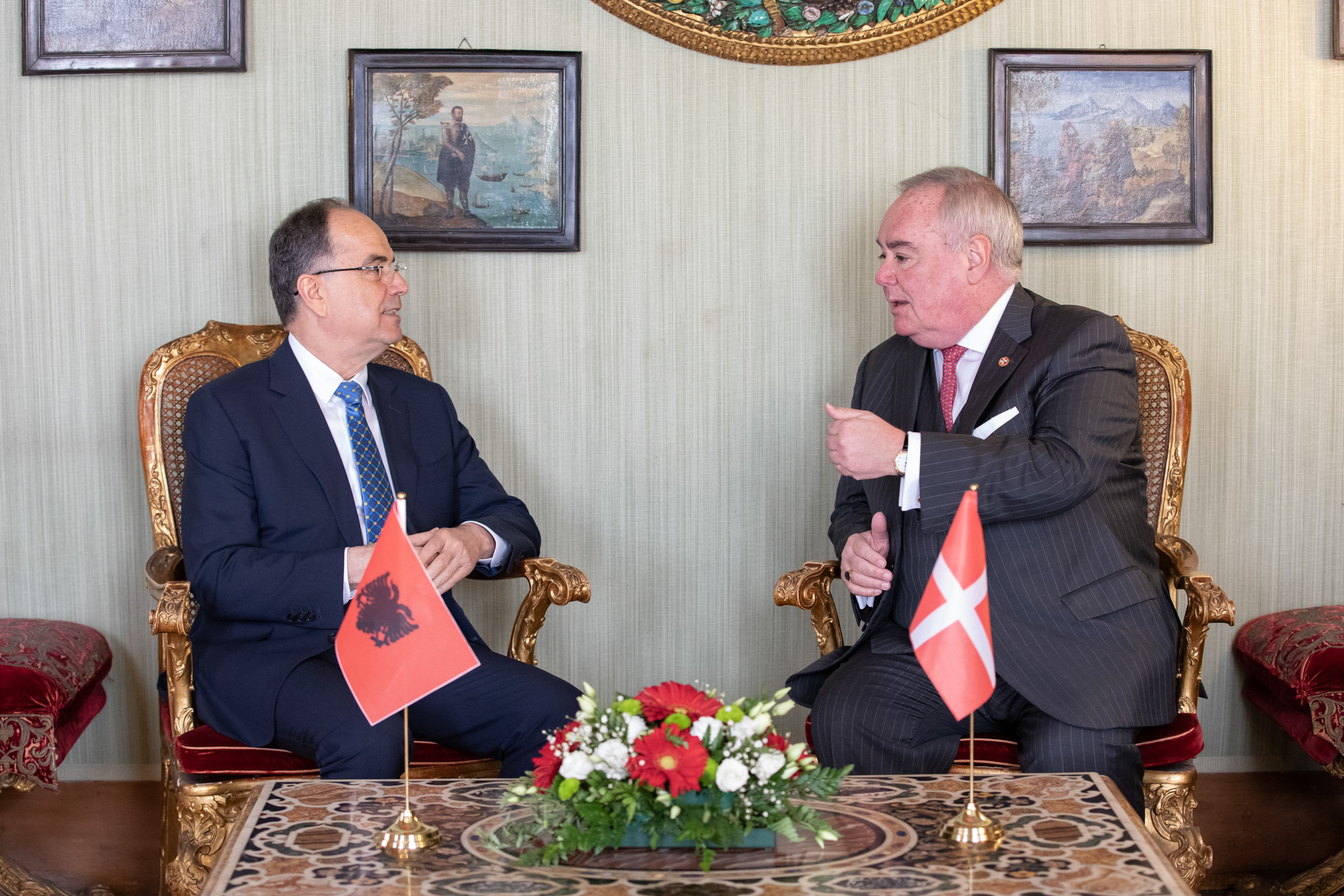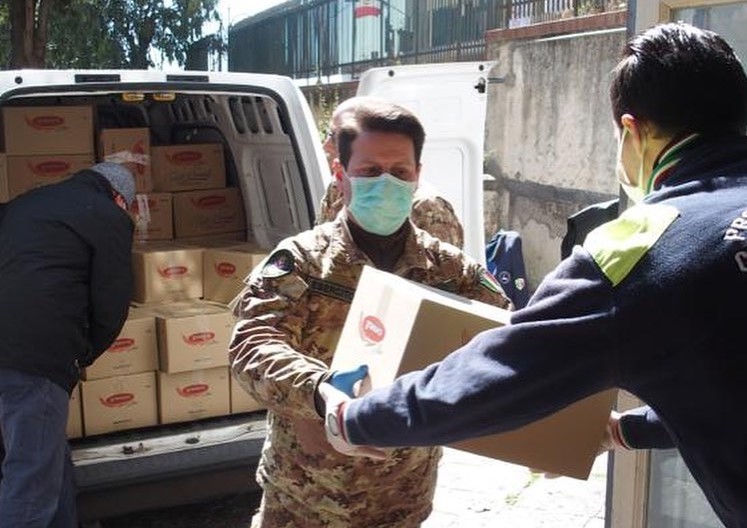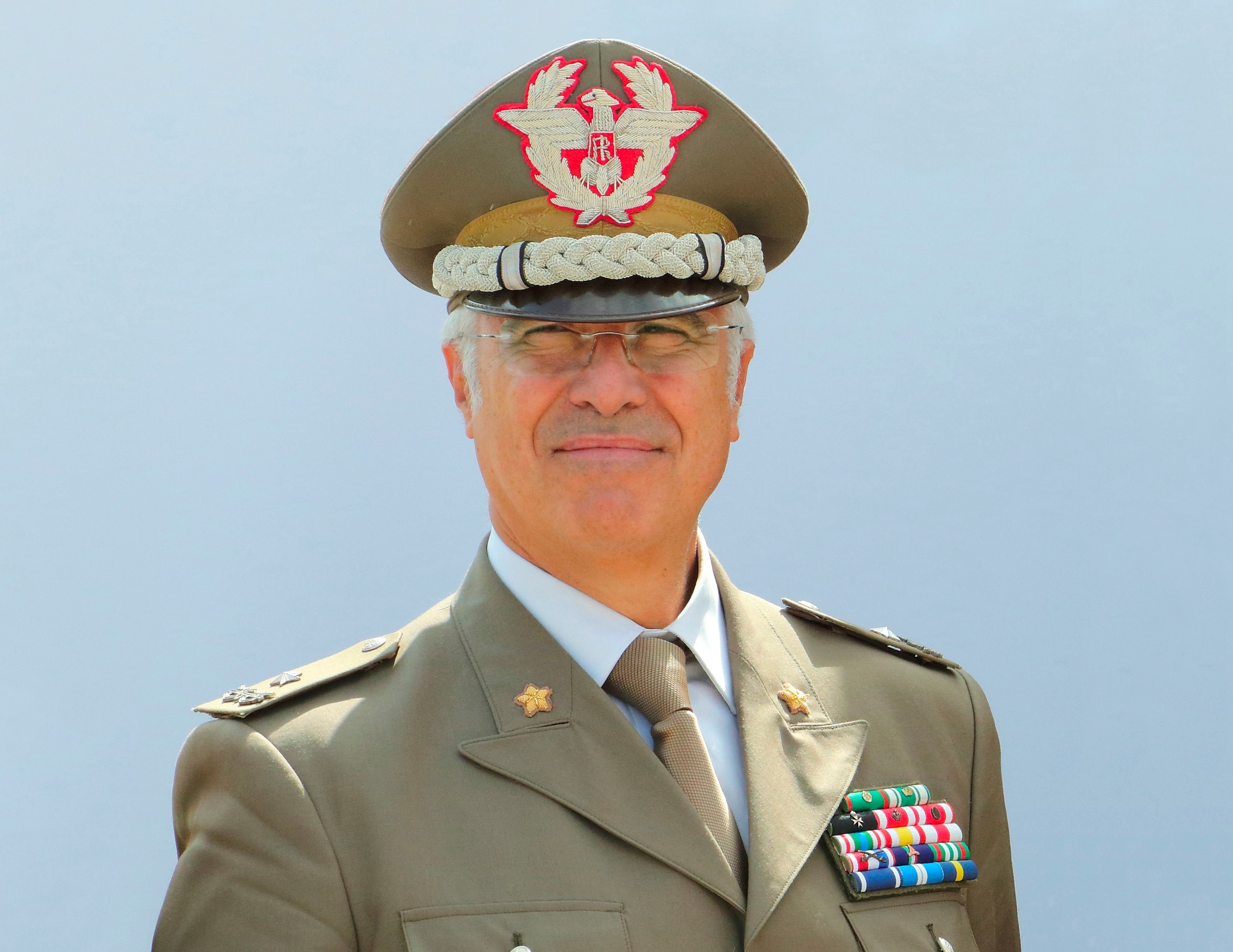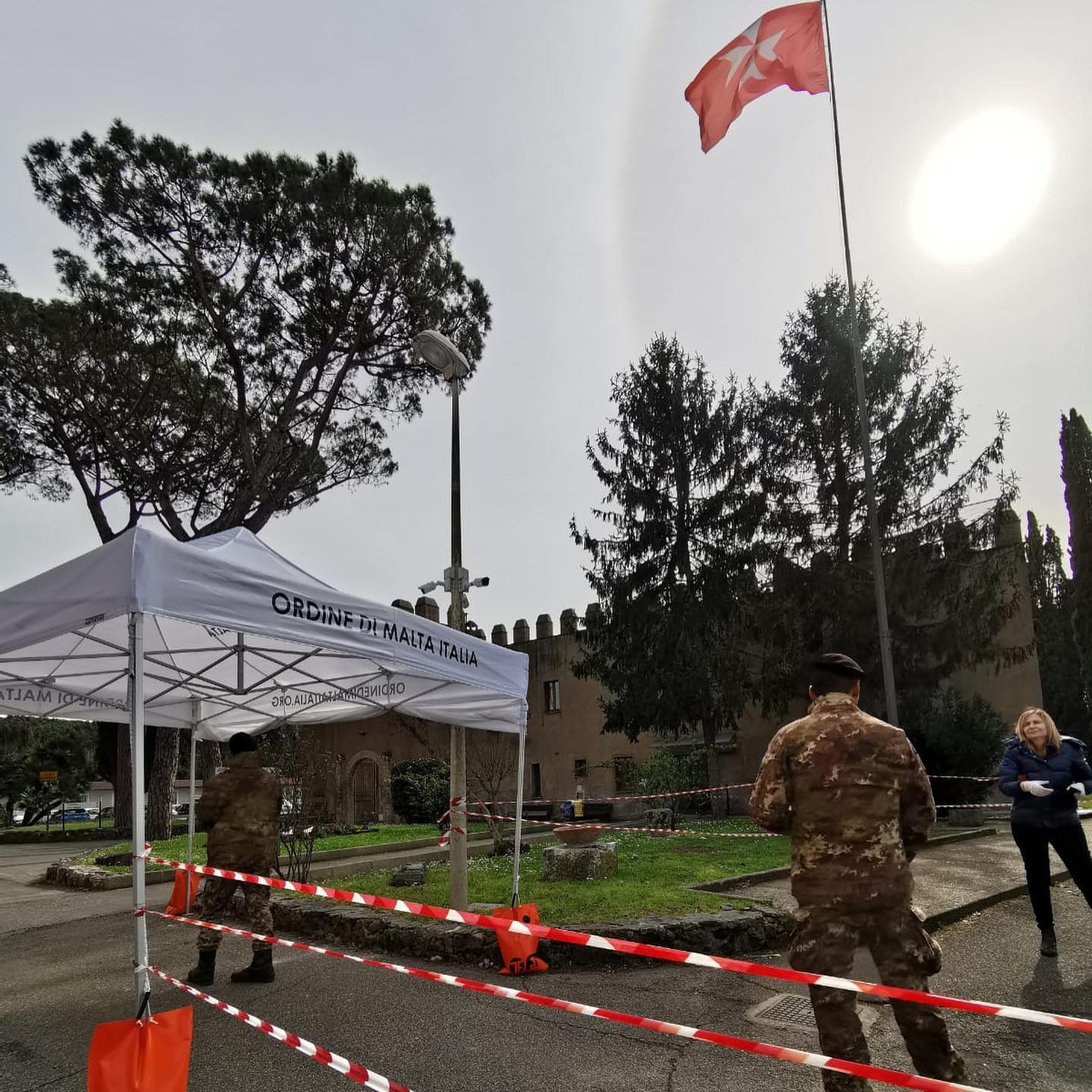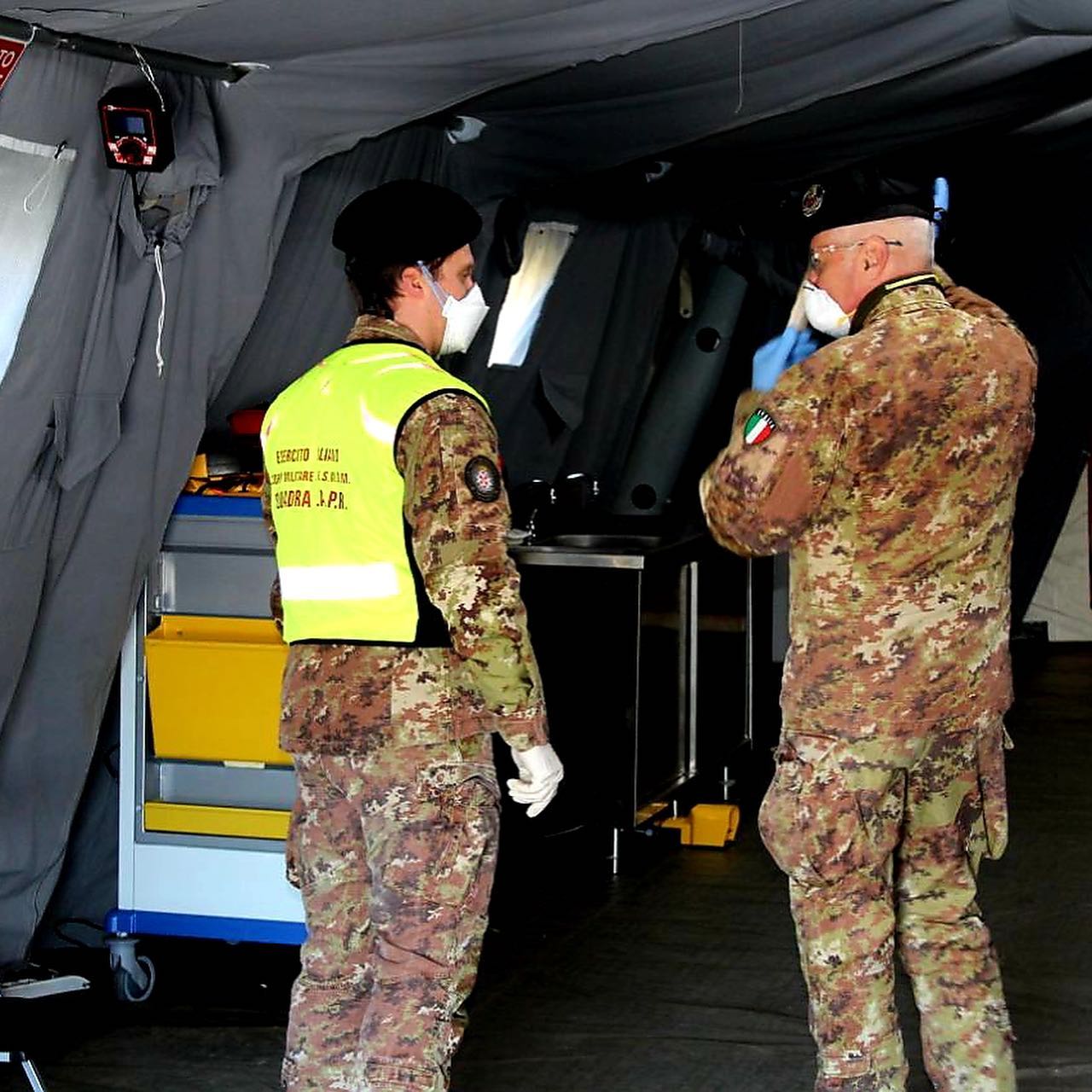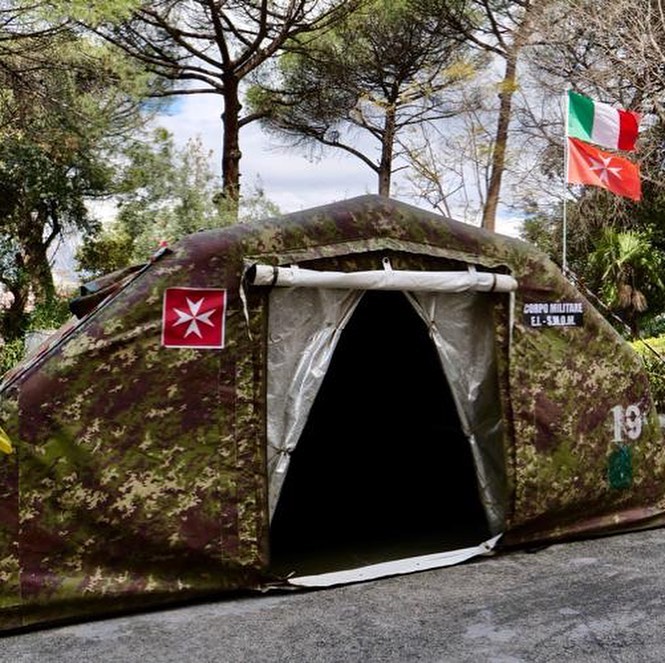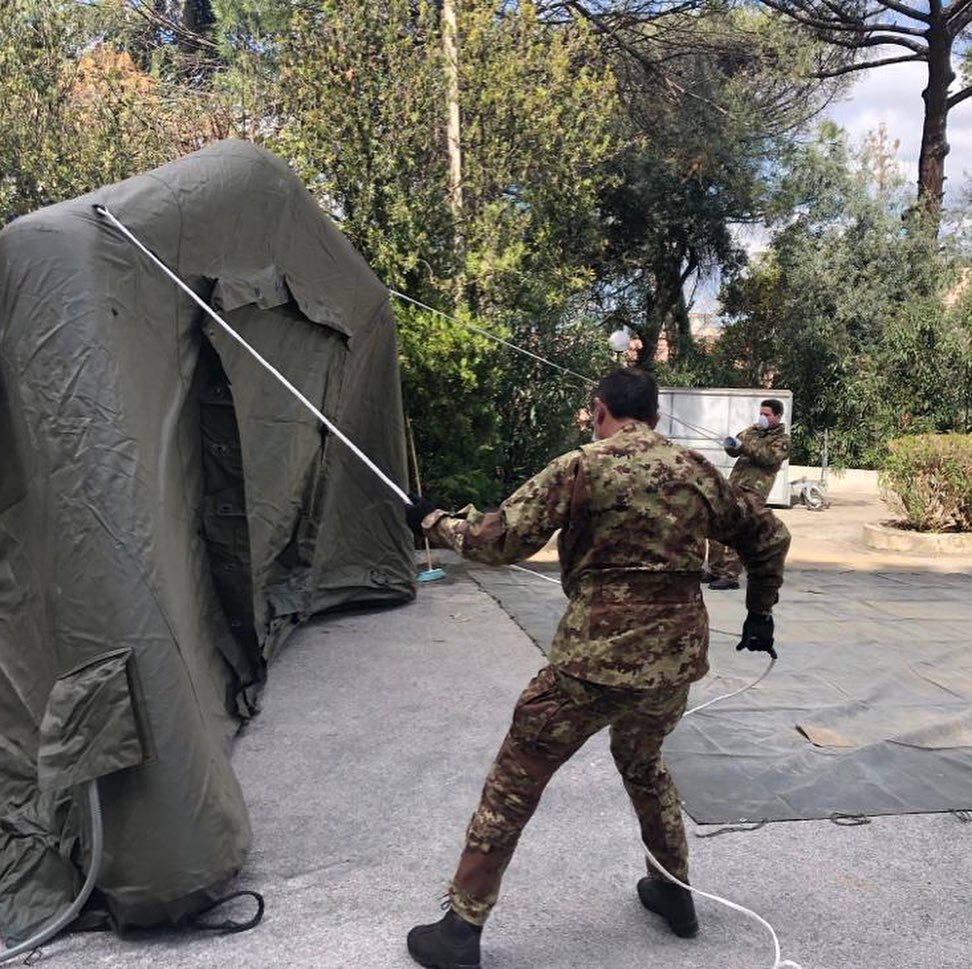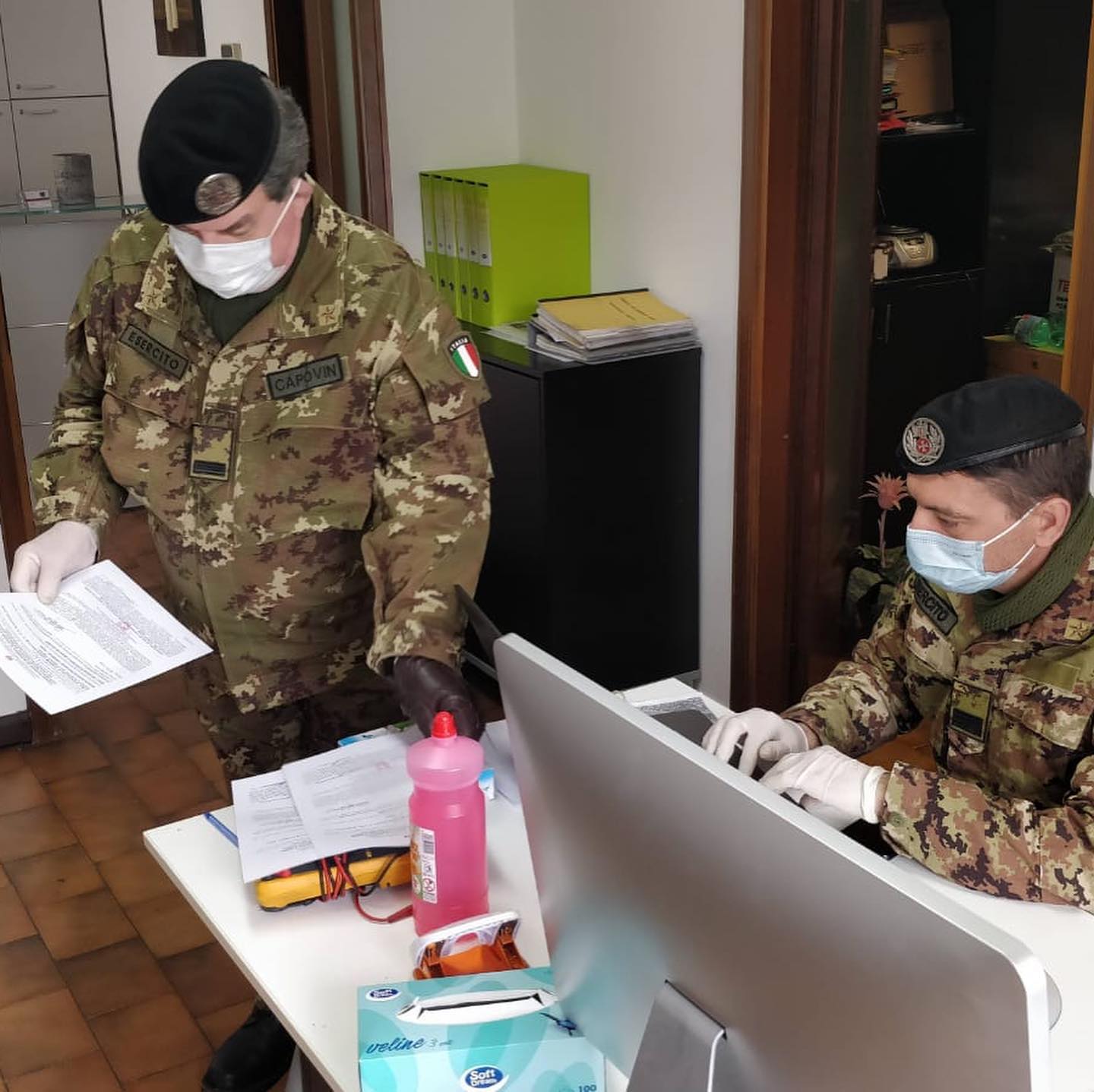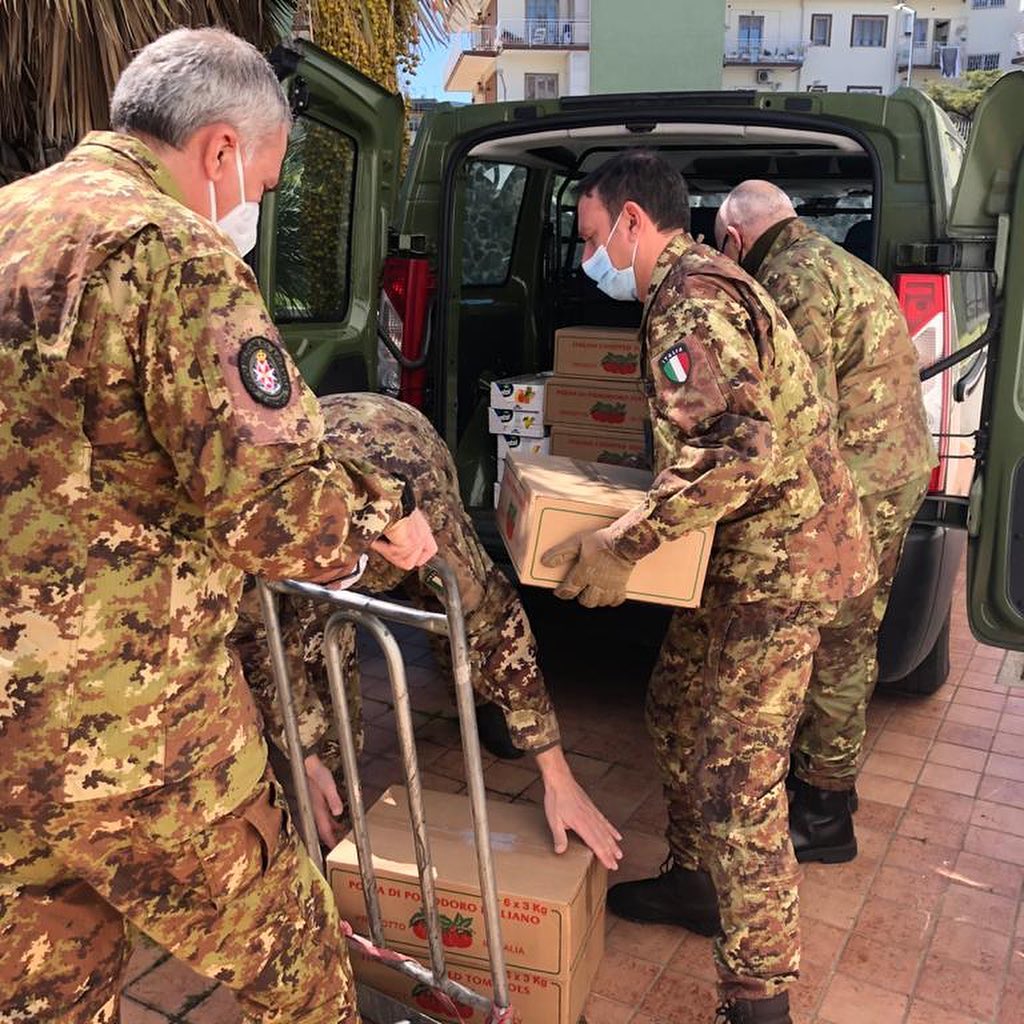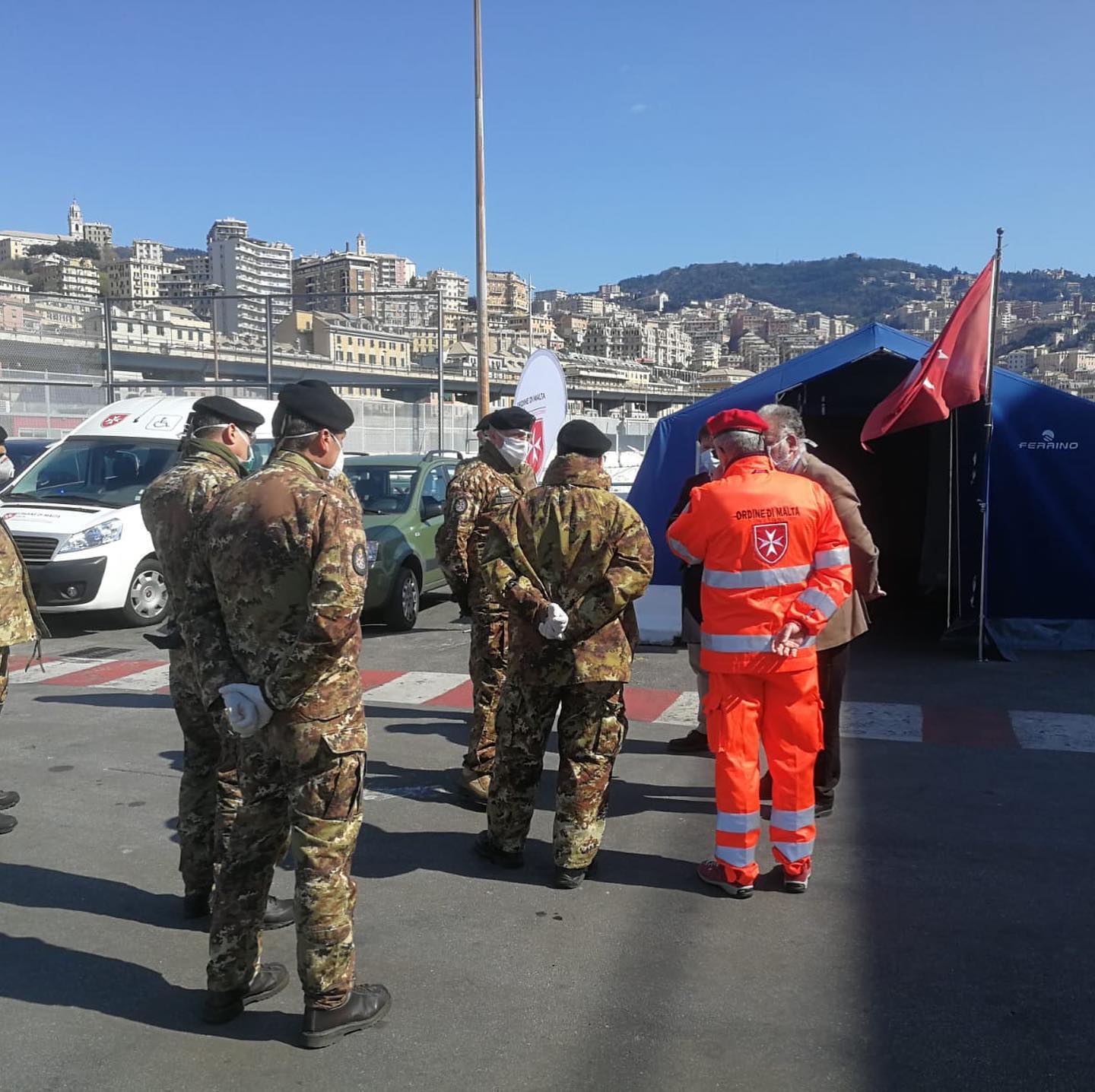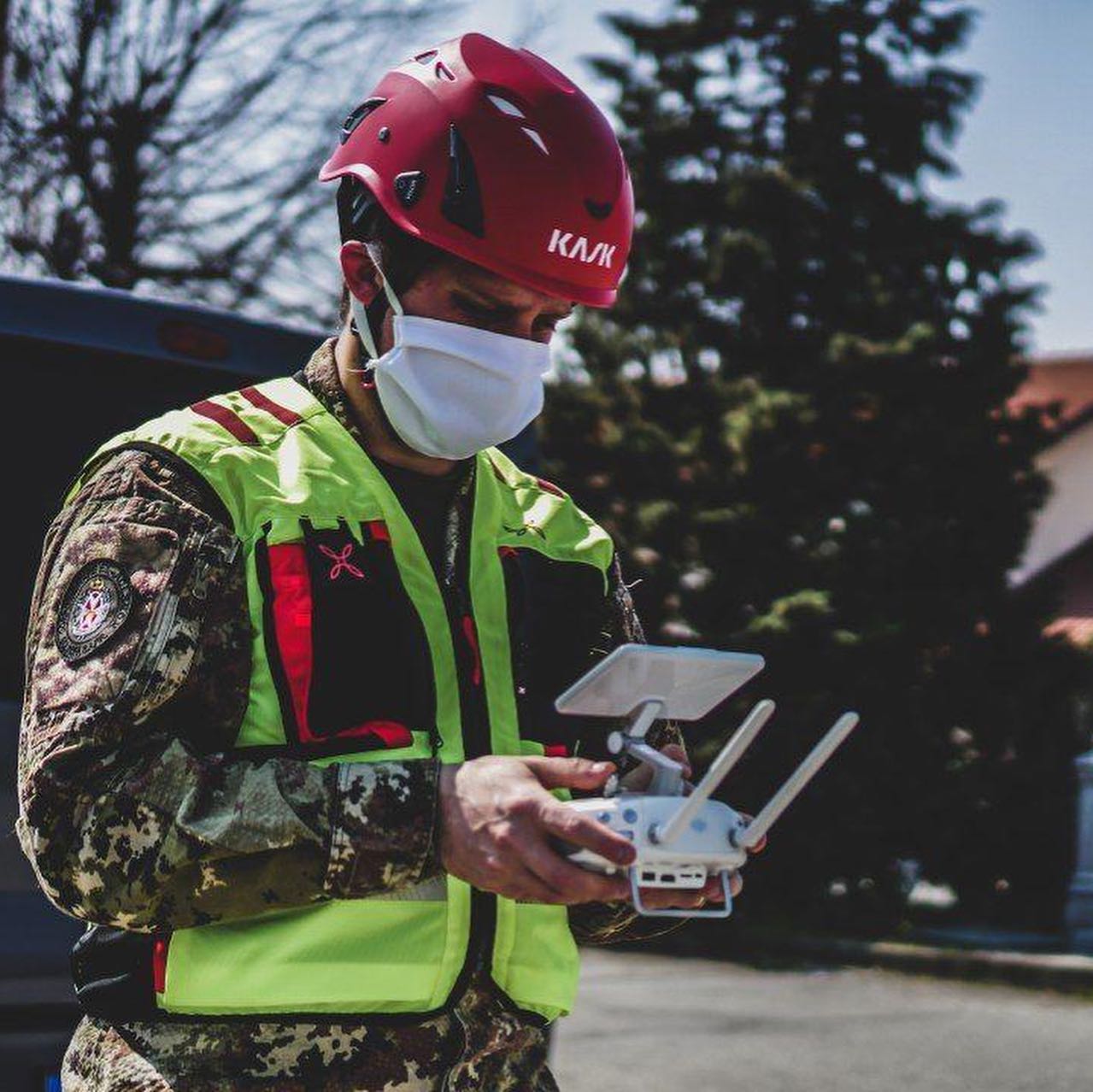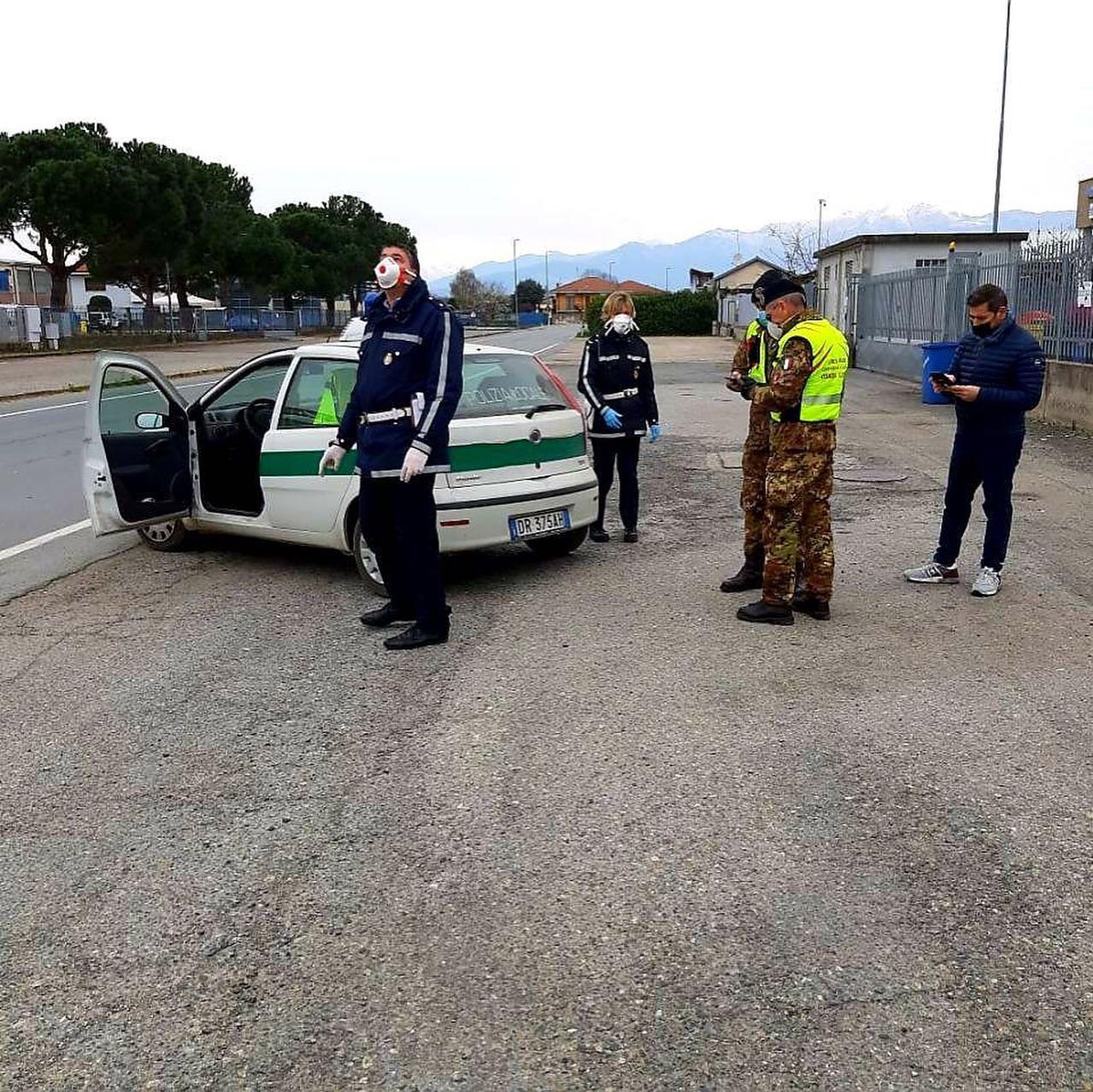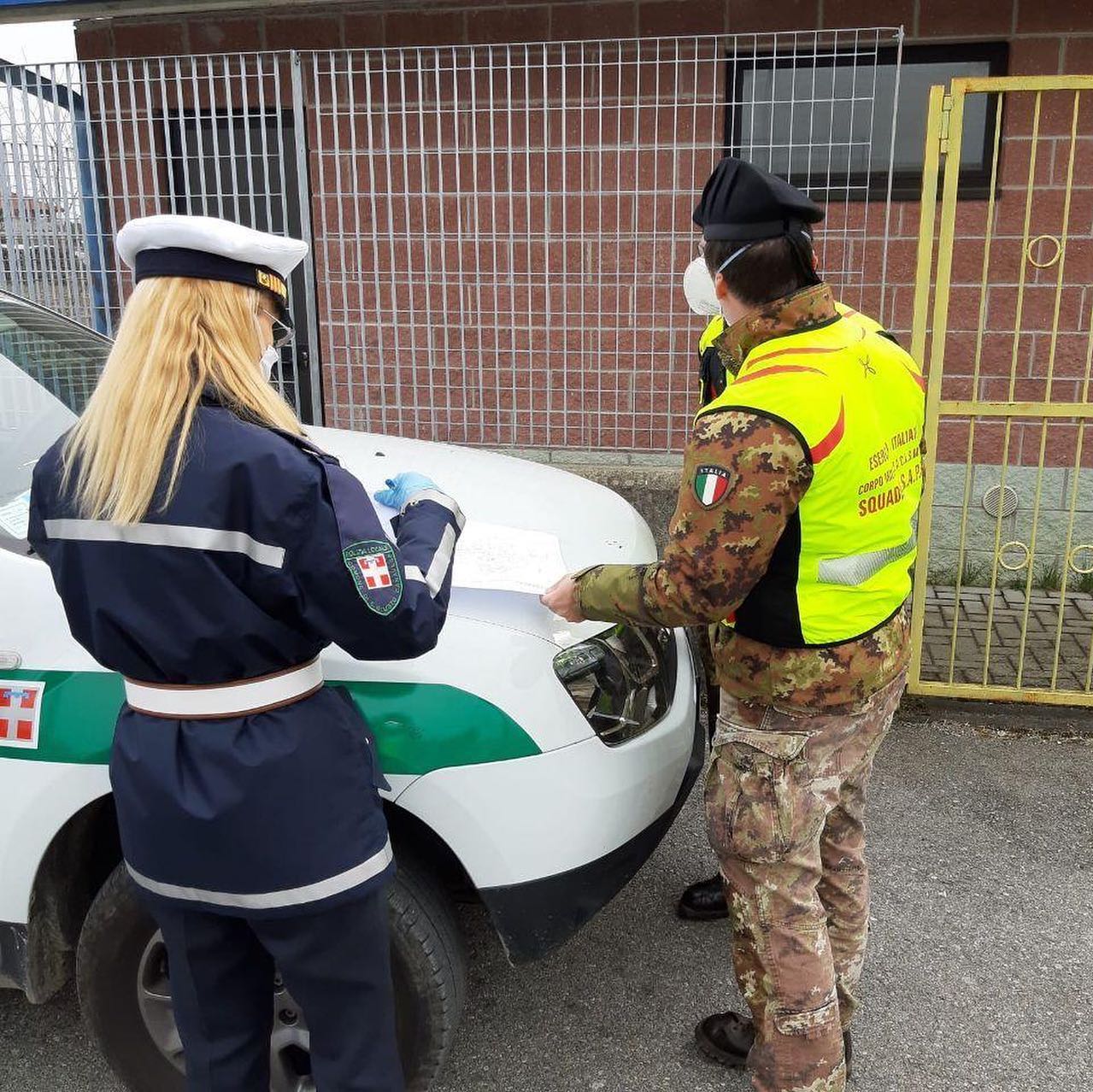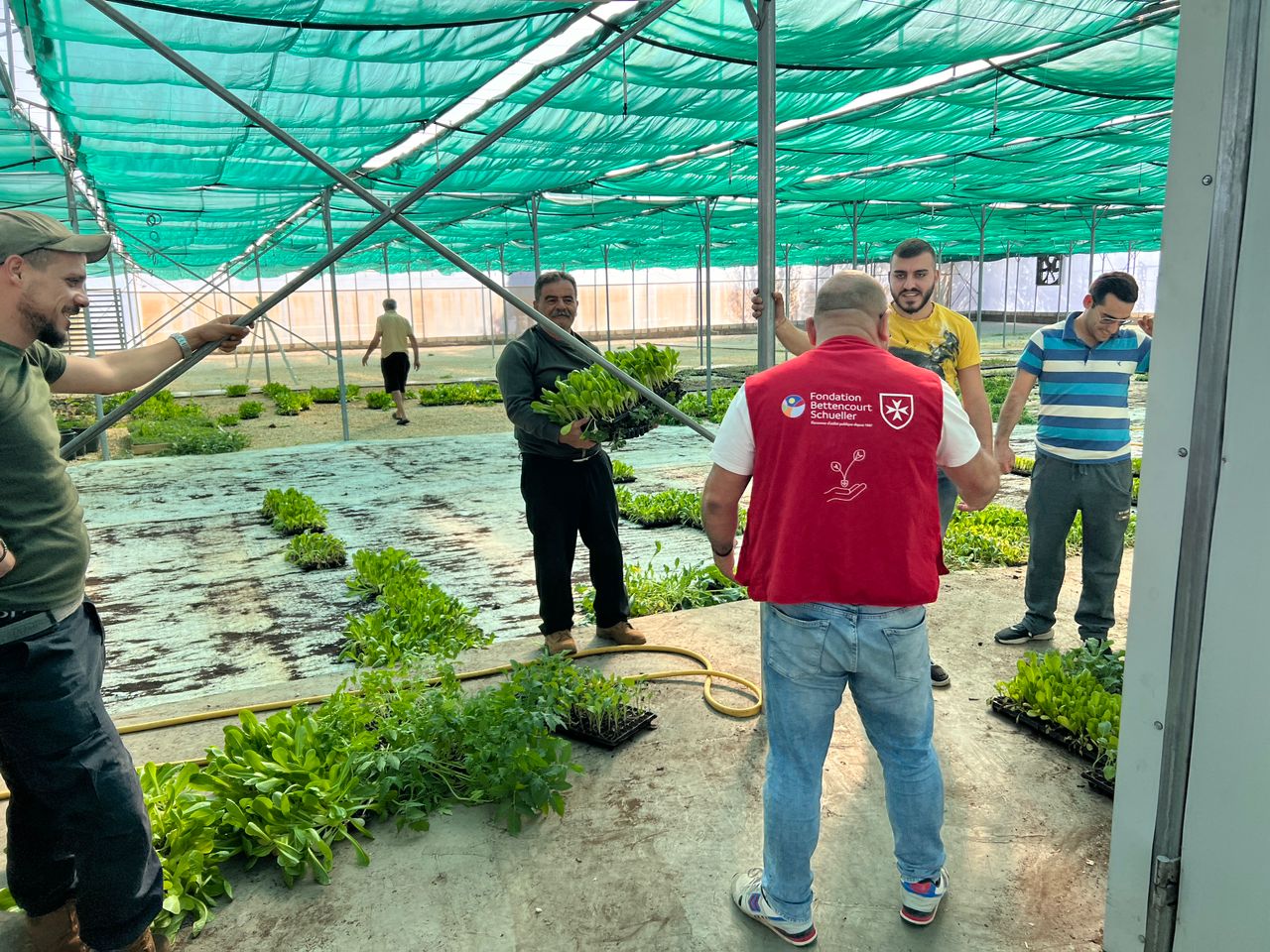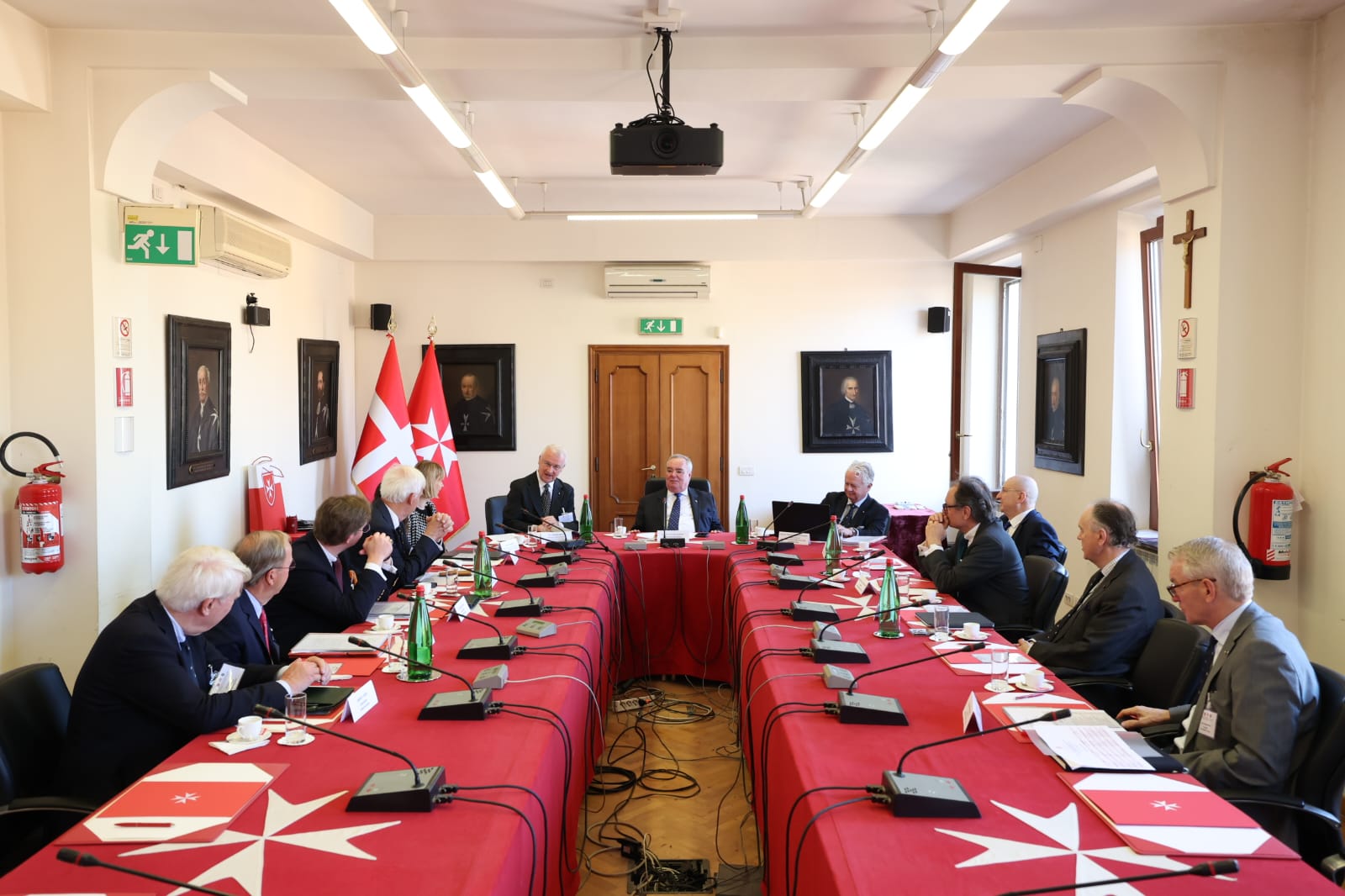The Order of Malta’s Italian Association Military Corps has a time-honoured experience in emergency interventions. Specialised in military healthcare, there has been no emergency in Italy, including two world wars and a long list of earthquakes and floods, in which it has not intervened. Managed for over a century in close cooperation between the Italian Army and the Order of Malta, it numbers some 500 people, mostly volunteers. We asked the commander, Brigadier General Mario Fine, about the corps’ commitment in the coronavirus emergency.
“This emergency is profoundly different from those the corps has had to face over the last forty years,” says General Fine. “Normally an earthquake, or other natural disaster, strikes one or two regions, not the entire national territory. Today we cannot intervene with personnel and means in the epicentre of the disaster; instead, we’re managing a myriad of interventions to support state administrations and citizens all over Italy”.
What are you doing during this new emergency?
Right from the start, we’ve had to rapidly adopt our work methods to this “invisible enemy”, guaranteeing the necessary safety standards. We have at all costs to prevent the risk of contagion among us, to avoid also becoming victims of this virus. I am convinced that, after this experience, we will have to change our intervention methods. We will probably invest more in logistics, for example, by acquiring Role 2 field units, like the one deployed in Crema, to integrate with those of other organizations, ensuring an adequate number of beds can be rapidly made available to the national health service.
How many requests for help have you received?
A great many. We have teams supporting local health authorities, Municipal Prefectures and Operations Centres throughout Italy in managing the emergency. One of our characteristics is that of having multiple skills in the corps; not only medical personnel, but also engineers, architects, electricians and carpenters. In the hardest hit area in Lombardy, a significant number of our personnel has served in the military hospital in Baggio and the Gravedona hospital. In the Crema field hospital, we have provided both medical and logistics personnel. Our corps distributes medicines and basic necessities to the elderly or disabled blocked at home in various municipalities in the north and south of the country. We also use drones to control the territory and provide training courses for military personnel on reducing the risks of contagion.
Much of the aid you provide involves logistics
For example, in the port of Genoa, the entire warehouse and supplies for the hospital ship set up by the Ligurian Region for coronavirus patients are under our responsibility. We are cooperating with the Order of Malta’s Liguria Delegation and Italian Relief Corps who are providing doctors and nurses to work on board the ship.
Then there’s the Order of Malta’s hospital in Rome
Here we monitor access to the pre-hospital triage. After the first cases of patients affected by coronavirus, the president of the Italian Association and the St. John Baptist hospital general management asked us to put the facility in lockdown. We put in place all the necessary safety procedures and since then there have been no new cases.
What episode has remained in your mind?
I always admire those who risk their own health to help others. I’m keeping a journal so as not to forget anything about this emergency. And I’ll certainly not forget those doctors who, after their shift in the Crema hospital, changed into their corps uniform to help set up the new hospitals.





